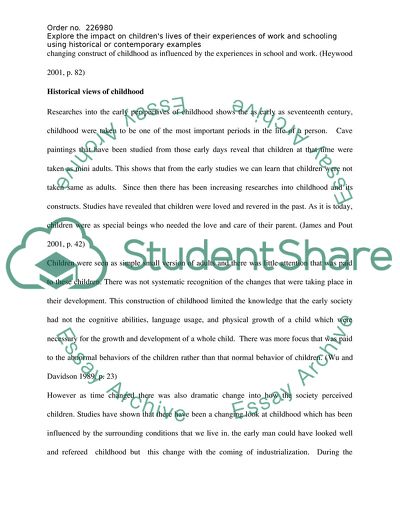Cite this document
(Children's Lives Case Study Example | Topics and Well Written Essays - 3000 words, n.d.)
Children's Lives Case Study Example | Topics and Well Written Essays - 3000 words. https://studentshare.org/psychology/1714238-expolre-the-impact-on-childrens-lives-of-their-experiences-of-work-and-schooling-using-historical-or-contemporary-examples
Children's Lives Case Study Example | Topics and Well Written Essays - 3000 words. https://studentshare.org/psychology/1714238-expolre-the-impact-on-childrens-lives-of-their-experiences-of-work-and-schooling-using-historical-or-contemporary-examples
(Children'S Lives Case Study Example | Topics and Well Written Essays - 3000 Words)
Children'S Lives Case Study Example | Topics and Well Written Essays - 3000 Words. https://studentshare.org/psychology/1714238-expolre-the-impact-on-childrens-lives-of-their-experiences-of-work-and-schooling-using-historical-or-contemporary-examples.
Children'S Lives Case Study Example | Topics and Well Written Essays - 3000 Words. https://studentshare.org/psychology/1714238-expolre-the-impact-on-childrens-lives-of-their-experiences-of-work-and-schooling-using-historical-or-contemporary-examples.
“Children'S Lives Case Study Example | Topics and Well Written Essays - 3000 Words”. https://studentshare.org/psychology/1714238-expolre-the-impact-on-childrens-lives-of-their-experiences-of-work-and-schooling-using-historical-or-contemporary-examples.


